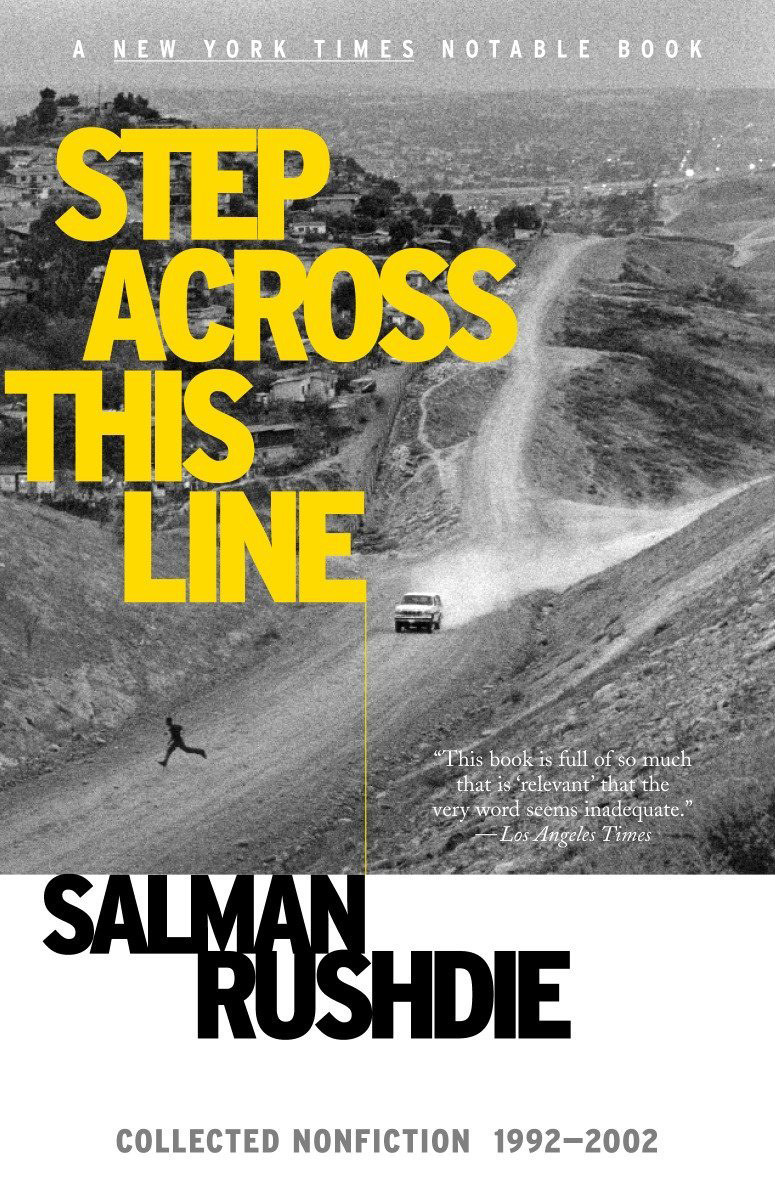

Most ebook files are in PDF format, so you can easily read them using various software such as Foxit Reader or directly on the Google Chrome browser.
Some ebook files are released by publishers in other formats such as .awz, .mobi, .epub, .fb2, etc. You may need to install specific software to read these formats on mobile/PC, such as Calibre.
Please read the tutorial at this link: https://ebookbell.com/faq
We offer FREE conversion to the popular formats you request; however, this may take some time. Therefore, right after payment, please email us, and we will try to provide the service as quickly as possible.
For some exceptional file formats or broken links (if any), please refrain from opening any disputes. Instead, email us first, and we will try to assist within a maximum of 6 hours.
EbookBell Team

5.0
80 reviewsFrom one of the great novelists of our day, a vital, brilliant new book of essays, speeches and articles essential for our times.
Step Across This Line showcases the other side of one of fiction’s most astonishing conjurors. On display is Salman Rushdie’s incisive, thoughtful and generous mind, in prose that is as entertaining as it is topical. The world is here, captured in pieces on a dazzling array of subjects: from New York’s Amadou Diallo case to the Wizard of Oz , from U2 to fifty years of Indian writing, from a tribute to Angela Carter to the struggle to film Midnight’s Children. The title essay was originally delivered at Yale as the 2002 Tanner lecture on human values, and examines the changing meaning of frontiers in the modern world -- moral and metaphorical frontiers as well as physical ones.
The collection chronicles Rushdie’s intellectual journeys, but it is also an intimate invitation into his life: he explores his relationship to India through a moving diary of his first visit there in over a decade, “A Dream of Glorious Return.” Step Across This Line also includes “Messages From the Plague Years,” a historic set of letters, articles and reflections on life under the fatwa. Gathered together for the first time, this is Rushdie’s humane, intelligent and angry response to a grotesque threat, aimed not just at him but at free expression itself.
Step Across This Line , Salman Rushdie’s first collection of non-fiction in a decade, has the same energy, imagination and erudition as his astounding novels -- along with some very strong opinions.
From the Hardcover edition.
Roughly one-fourth of these essays deals with the response of the media, various governments and Rushdie himself to what he calls the "unfunny Valentine" he received on February 14, 1989, from the Ayatollah Khomeini: the fatwa calling for his death. Everyone, it seems, had a script for Rushdie to follow, though none of these fantasies resembled the rather simple one the author fancied (and which seems to have been realized), which is that his problems gradually disappear and he be allowed to resume a more or less normal writerly life. To paraphrase an idea that appears in several of these essays, the problem is that frontiers cross us rather than the other way around: we are going about our business when our country is divided (as happened to Rushdie's native India in 1947) or we encounter a shocking work of art or our enemies declare they will kill us. Many respond to unnerving changes by embracing religion, but, says Rushdie, "ancient wisdoms are modern nonsenses"; in place of sectarian fervor, he recommends intellectual freedom, a simple concept yet a rigorous practice, as this book proves. These essays range over literature, politics and religion, as well as Rushdie's two private passions, rock music and soccer. They are united by a play of sparkling intelligence seasoned with sly wit, qualities that would serve the world at any time in its long, flawed history. After all, says Rushdie, the story he loved first and still loves best, perhaps the story of all humanity, is The Wizard of Oz, a fable that tells us the grown-up world doesn't really work, that adults can be good people and still be bad wizards.
Copyright 2002 Cahners Business Information, Inc.
Thanks to some Iranian ayatollahs, Rushdie is probably the most famous writer still alive. Although he remains under partial protection, he has continued to write since 1989, producing several novels and many articles. This first collection of short nonfiction includes material about his life under the fatwa ("Messages from the Plague Years") but ranges from discussions of The Wizard of Oz and rock music to his February 2002 lectures on human values at Yale. The title is well chosen; Rushdie tends to be confrontational, and the white-hot publicity has not mellowed him-a 1999 piece debates whether Charlton Heston or Austrian writer Peter Handke, a supporter of Slobodan Milosevic, should be dubbed "Moron of the Year." Although some of the pieces themselves are a bit dated, Rushdie has added updates in footnotes, and in any case he always makes his point. For large collections or journalism special collections.
Shelley Cox, Special Collections, Southern Illinois Univ. Lib., Carbondale
Copyright 2002 Reed Business Information, Inc.